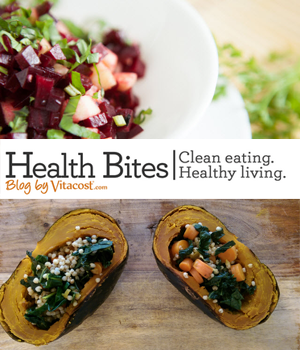8 Comforting Foods for Joint Pain
Hippocrates said “Let food be thy medicine and medicine be thy food.” Today’s guest post highlights super foods that may help lower inflammation to ease join pain. Thanks Stuart for another great guest post!
Disclaimer: Please consult with your doctor before making any dietary or lifestyle changes.
Did you know that what you eat can help to ease your joint pain—or make it worse? Add some of these joint-nourishing foods to your diet and help keep your joints healthy and comfortable.
1. Fish Rich in Omega-3 Fatty Acids. Wild salmon, halibut, mackerel, and sardines all have high levels of omega-3s, which have been shown to reduce the inflammation response. Several studies have found that the consumption of omega-3 fatty acids helps to relieve symptoms associated with rheumatoid arthritis, like pain and morning stiffness.
2. Walnuts and Pecans. These nuts are also high in healthy omega-3s to help reduce inflammation. Be sure you eat unsalted nuts, as the added salted varieties can be harmful to your health.
3. Berries. Blueberries, cranberries, and strawberries are antioxidant powerhouses. Antioxidants are essential to scavenge free radicals in your joints and help keep them healthy.
4. Pineapple. This tropical fruit provides bromelain, a protein enzyme that can reduce inflammation.
5. Cherries. The consumption of cherries, and tart cherries, in particular, has been shown to decrease the risk of gout attacks. Gout is a form of arthritis caused by the build-up of uric acid and results in inflammation—and pain—in one or more joints. One study, published in the December 2012 issue of Arthritis & Rheumatology found that consumption of cherries over a 2-day period reduced the risk of gout attacks 35% vs. those that did not consume cherries.
6. Vegetables with High Levels of Vitamins A, E, and C. Vitamins A, E, and C are known to reduce inflammation and you can find them in green leafy vegetables, like parsley, kale, and broccoli, sweet potatoes, carrots and squash.
7. Olive oil. Areas of the world that use olive oil have much lower rates of joint pain. The fats in olive oil are used by the body to produce prostacyclin, a very powerful anti-inflammatory substance. If you don’t like olive oil, coconut oil or grapeseed oil are good alternatives.
Be sure to avoid oils like corn, sunflower, cottonseed, canola, and safflower. These types of oils could be rancid, but are often deodorized so you won’t know. Rancid oils can cause inflammation.
8. Avocado. This popular tree fruit slows the production of interleukins involved in the inflammatory process and the breakdown of cartilage.
Making changes to your eating habits is never easy. Don’t try to change your diet overnight. Small changes are the easiest way to start incorporating these foods into your daily routine. Try to find friends who want to make the change with you. Then you’ll all reap the rewards of a more active lifestyle, with flexible, more comfortable joints.
This article is written by + Stu Lieberman the writer for http://www.nutri-health.com, an online High Quality Supplement and Health Store. Assisting people and helping them find quality natural supplements and health products online is what Stu has been doing for over 2 years. Nutri-Health.com carries high quality supplements, probiotics and enzymes.


